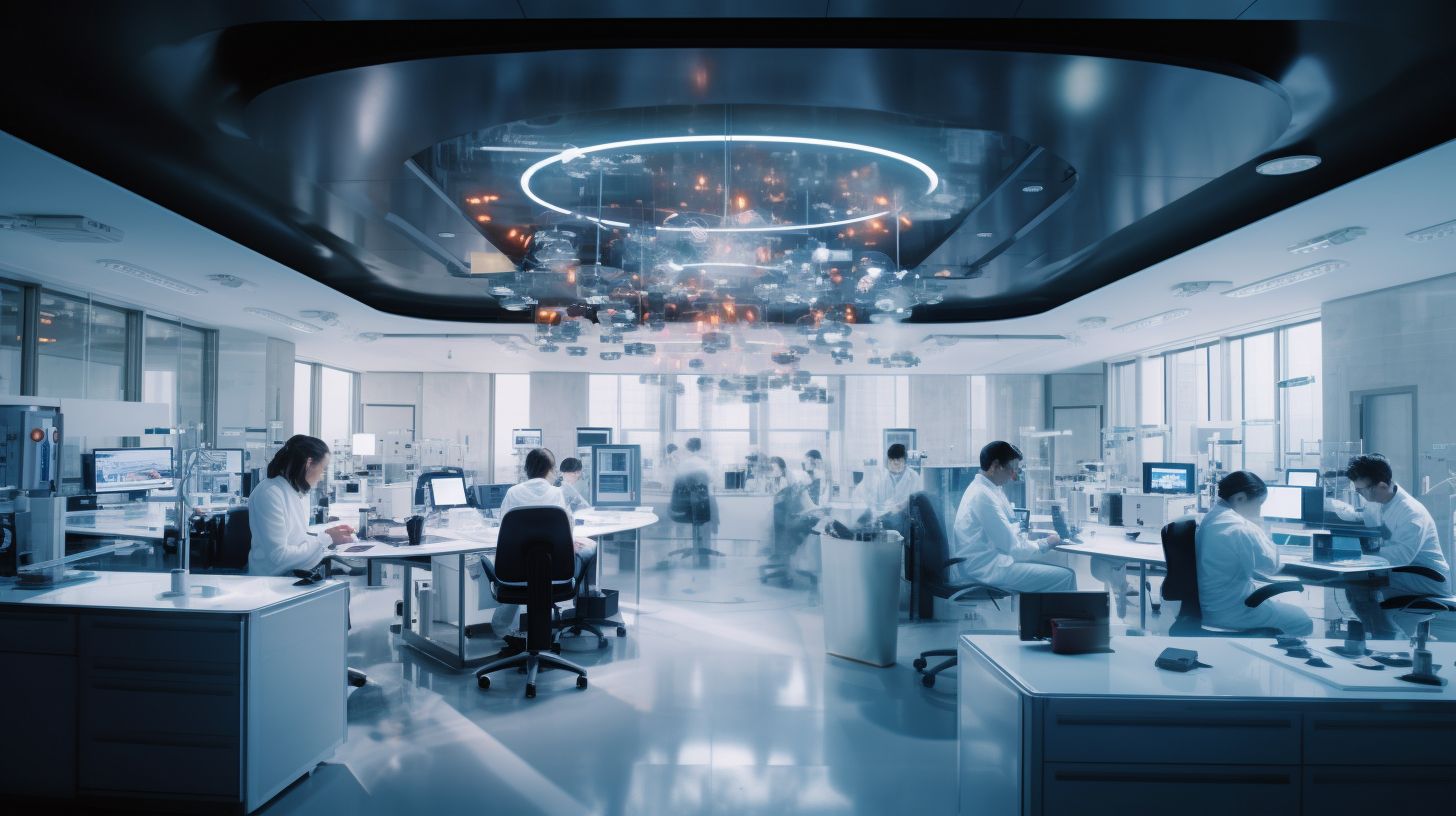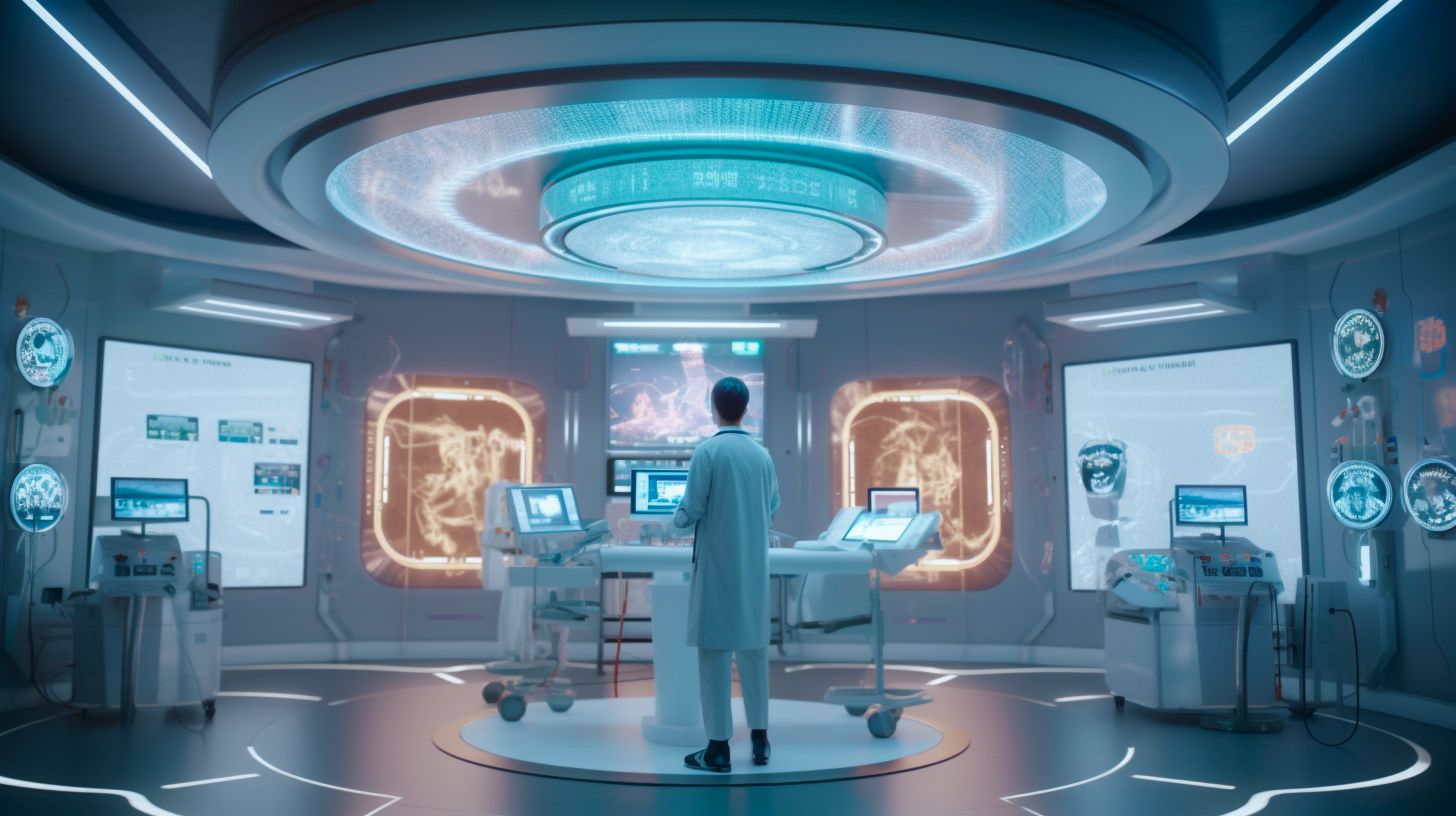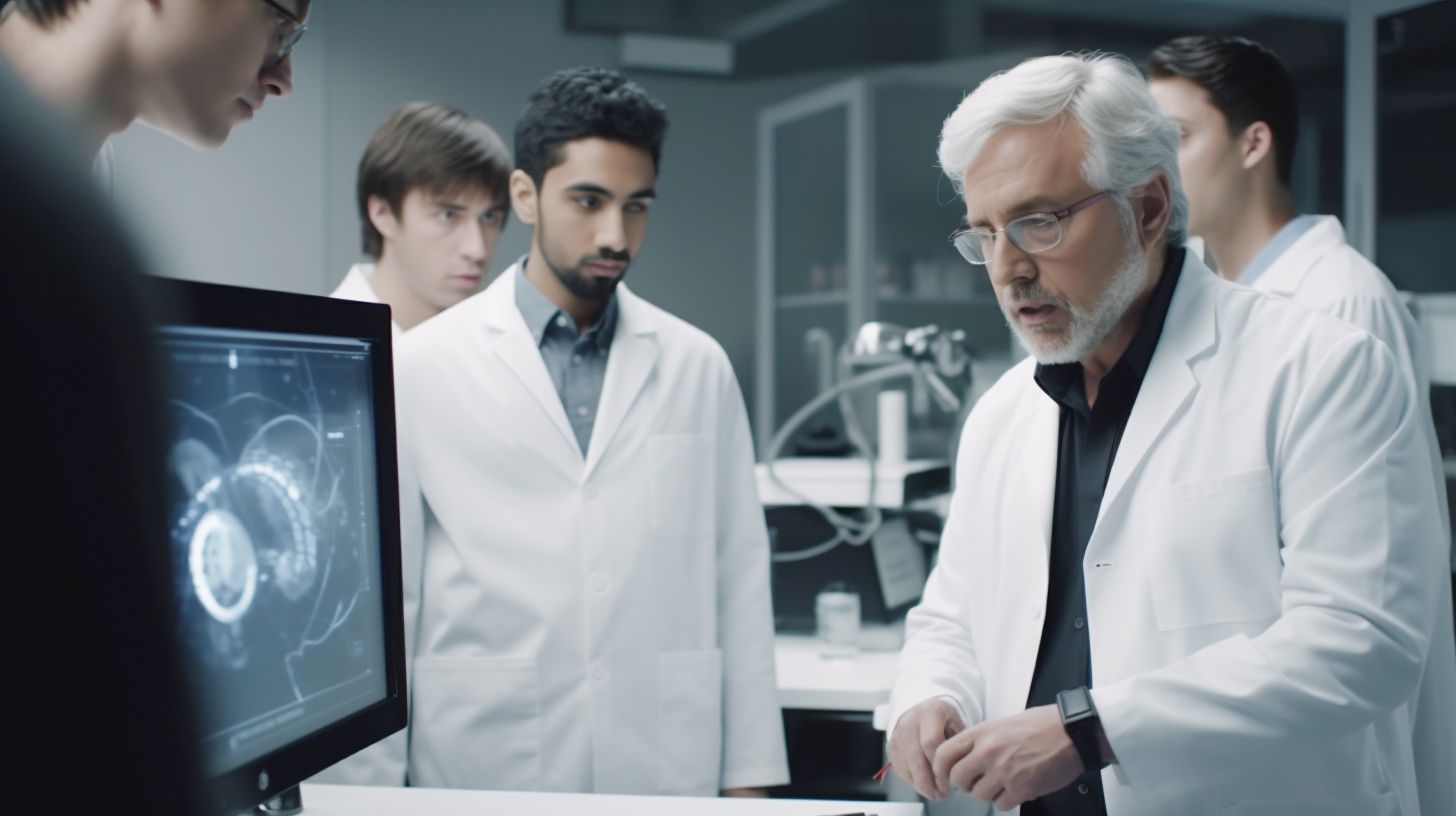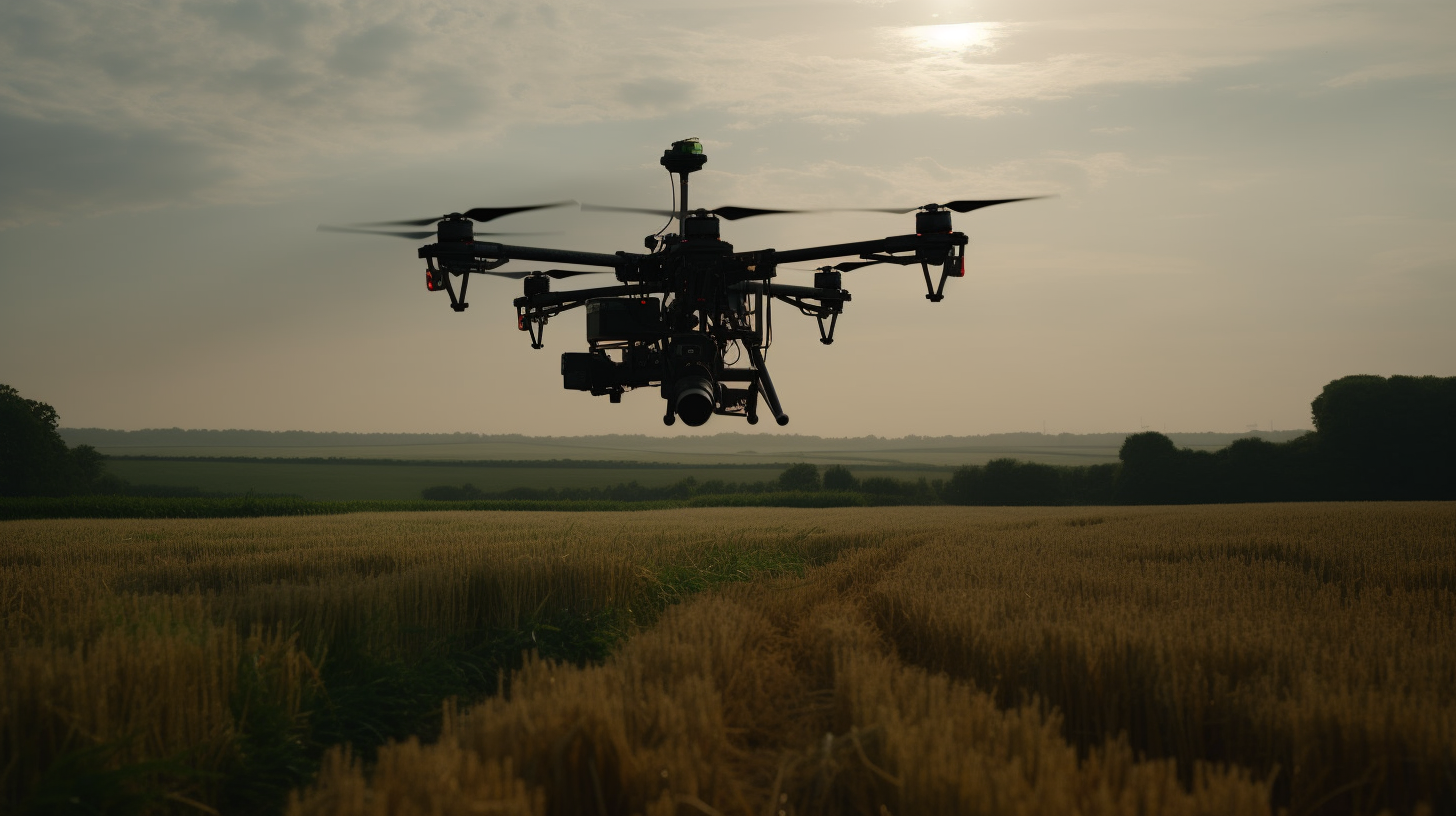How Technology is Transforming Medicine's Future Landscape
The role of M&A in embracing a New Era of Patient Care and Medical Innovation

The healthcare industry is undergoing a radical transformation, with technology playing an increasingly vital role in shaping the future of medicine. M&A transactions can positively shape the transformation of medical innovation in patient care. This article explores the various ways in which technology is changing the landscape of healthcare, focusing on the emergence of telemedicine, robotic-assisted surgery, and artificial intelligence in medical diagnostics. The analysis will delve into the implications of these innovations on healthcare providers, patients, and the broader medical technology sector, while also examining the potential impact on mergers and acquisitions (M&A) activities and investments. As healthcare continues to evolve, understanding these trends will be crucial for industry stakeholders.
The Emergence of Telemedicine and its Impact on the Healthcare Industry
Telemedicine has grown exponentially in recent years, driven by advances in digital communication and an increasing demand for accessible healthcare services. This has led to a significant shift in the way medical care is delivered and has broad implications for the healthcare industry, including the need for strategic planning and investment in digital infrastructure.
Telemedicine enables healthcare providers to offer consultations and services remotely, greatly expanding access to medical care for underserved communities and patients in remote areas. By leveraging telecommunication technologies, patients can receive timely medical advice and treatment without the need for long-distance travel, reducing costs and overcoming geographical barriers to healthcare. Such increased accessibility also helps address health disparities and improves overall public health outcomes.
Healthcare providers have increasingly adopted telemedicine to supplement traditional care delivery models. Particularly the United States has come far concerning Telemedicine, with companies such as American Well, 98point6, Doxy.me and Teladoc Health providing urgent care, mental healthcare, and preventive healthcare and more. The shift has opened up new opportunities for collaboration and coordination, allowing providers to manage patient care more efficiently and effectively.
In Europe, Telemedicine continues to surge likewise, bringing healthcare directly to patients through digital platforms. Several notable companies stand at the forefront of this transformative trend, demonstrating the growth and potential of telemedicine in the region.
Among these is KRY, a Swedish trailblazer in telemedicine. The company offers a platform that connects patients with licensed physicians, enabling them to receive professional medical advice via video or telephone consultations. KRY's services highlight the convenience and accessibility offered by digital healthcare solutions.
Another key player is Babylon Health. The UK-based company has built a comprehensive telemedicine platform where patients can schedule virtual appointments and receive medical advice. Babylon Health's technological innovation showcases the remarkable advancements in virtual healthcare provision.
Doktor.se - another prominent Swedish telemedicine provider - takes the patient experience further by offering not only general practitioner services but also access to specialists via video consultations. Their emphasis on comprehensive care encapsulates the potential of telemedicine to make a wider range of healthcare services more accessible.
HealthHero, a pan-European telemedicine company, operates across multiple countries and offers a platform where patients can interact with doctors via video calls. Their cross-border operations underline the expanding reach of telemedicine in Europe.
Each of these companies exemplifies the rise of telemedicine in Europe, illustrating the transformative impact of technology on healthcare accessibility and delivery.
With healthcare organisations seeking to expand digital capabilities and enhance market presence through strategic acquisitions, the Telemedicine trend triggers M&A activity and reflects the growing importance of Telemedicine in maintaining a competitive edge within the industry.
As Telemedicine continues to grow, so does the need for clear regulatory guidance and appropriate reimbursement policies. Governments and regulatory bodies must strike a balance between encouraging innovation and ensuring patient safety, while also addressing potential challenges related to data privacy, security, and licensing. These factors will significantly influence the growth and consolidation of the medical technology sector, with companies and providers seeking to navigate the ever-evolving regulatory landscape.

Robotic-Assisted Surgery and its Revolutionary Impact on Patient Care
Leading companies such as Intuitive Surgical, Medtronic, and Stryker have developed cutting-edge robotic technologies that are revolutionising surgical procedures. These advancements provide surgeons with unprecedented precision and control, allowing for more complex operations and improved patient outcomes. As these technologies continue to evolve, potential applications and benefits of robotic surgery will only increase.
Robotic-assisted surgery offers several advantages over traditional methods, including reduced complications, shorter recovery times, and less scarring. Additionally, the enhanced precision of robotic tools allows for more accurate dissection and suturing, resulting in fewer postoperative complications and faster recovery. It allows doctors to perform complex procedures with enhanced precision, flexibility, and control in comparison to conventional techniques. Such leads to improved quality of patient care as well as cost savings for healthcare providers and patients alike.
The rapid advancements in robotic surgery make it an attractive area for investment and M&A activity. Healthcare organisations are increasingly looking to acquire or partner with companies specialising in robotic technologies, seeking to capitalise on the market's growth potential and strengthen their competitive positioning. The robotic surgery market is currently valued at USD 3 billion. In response to current market growth, Vicarious Surgical, a company whose medical robot has been granted a breakthrough designation by the US FDA, recently merged with D8 Holdings Corp. in a deal valued at up to USD 460 million. As the adoption of robotic surgery continues to expand, it is expected that deal-making, partnerships, and consolidation within the healthcare industry will intensify, creating new opportunities for innovation and collaboration.

Artificial Intelligence and Big Data: Powering the Next Generation of Medical Diagnostics
Artificial intelligence (AI) and big data have become increasingly important in the healthcare sector, driving innovation, and transforming the way medical diagnostics are conducted, while also presenting unique challenges and ethical considerations. In 2020, a notable discovery in the field of antibiotics with the development of "Halicin" occurred. This novel antibiotic was found to be effective against bacteria strains previously resistant to all known antibiotics. The discovery was made possible through the use of artificial intelligence which was trained to identify a molecule with healing properties by detecting correlations between the structure of the molecule and its antibiotic capabilities.
AI and machine learning have the potential to revolutionise various aspects of medical diagnostics, from medical imaging to pathology. By leveraging vast amounts of data and sophisticated algorithms, AI-driven diagnostic solutions can identify patterns and anomalies that may be overlooked by human practitioners, leading to more accurate diagnoses and improved patient care. The integration of AI into diagnostic processes also helps streamline workflows, enhancing efficiency and reducing the potential for human error.
An increased availability of large-scale data sets, often referred to as big data, has opened up new possibilities in the realm of personalised medicine. By analysing genomic, clinical, and environmental data, researchers and clinicians can develop targeted therapies and individualised treatment plans that cater to the unique needs of each patient. Such a shift towards personalised medicine promises to improve patient outcomes, reduce adverse side effects, and optimise healthcare resources. However, it also raises concerns about data privacy and the equitable distribution of healthcare advancements.


